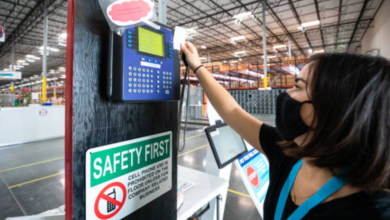
Auto Body Shops: The Unsung Heroes of Vehicle Restoration and Innovation
In the vast ecosystem of the automotive industry, auto body shops stand out as indispensable pillars, breathing new life into vehicles through expert repair and meticulous craftsmanship. These specialized facilities are where damaged cars are transformed, dents are smoothed, and finishes are perfected, ensuring both functionality and aesthetic appeal. For a prime example of excellence in this field, look no further than Upgrade Garage Carrosserie, a leader in precision auto body services. The auto body sector is thriving, propelled by technological advancements, a surge in vehicle longevity, and an increasing emphasis on sustainable practices. This article explores the critical role of auto body shops, details their essential services, and examines their enduring impact on the automotive world.
The Journey of Auto Body Shops Through Time
The history of auto body shops is a tale of evolution and adaptation. Once simple garages focused on hammering out dents and patching rust, these shops have grown into high-tech hubs capable of tackling the complexities of modern vehicles. The shift began as cars themselves evolved—moving from basic steel frames to intricate designs featuring aluminum alloys, carbon fiber, and advanced electronics. Today, auto body shops in key markets like the United States, Europe, and Asia employ state-of-the-art tools such as laser-guided frame straighteners, digital diagnostic systems, and eco-friendly spray booths to meet these challenges head-on.
This transformation mirrors broader trends in vehicle ownership. With cars now built to last longer—often exceeding a decade of use—owners are more inclined to invest in repairs rather than replacements. Whether it’s repairing collision damage, erasing cosmetic flaws, or customizing a ride, auto body shops blend technical expertise with an artist’s touch, ensuring every vehicle leaves their bays in top condition.
See also: Game-Changing Localization for Auto Industry
Essential Services Provided by Auto Body Shops
Auto body shops offer a diverse array of services, catering to everything from minor touch-ups to major overhauls. Here’s a closer look at their core offerings:
- Collision Repair
Accidents can compromise a Linkhouse vehicle’s structural integrity, making collision repair a cornerstone of auto body work. Technicians use advanced equipment to realign frames, replace crumpled panels, and restore safety features, ensuring the car meets stringent roadworthiness standards. - Dent and Scratch Removal
Everyday wear and tear—think parking lot dings or gravel scratches—can mar a car’s appearance. Paintless dent repair (PDR), a popular technique, allows shops to erase these blemishes without repainting, preserving the factory finish while keeping costs low. - Painting and Refinishing
A flawless paint job does more than enhance looks—it protects against corrosion. Modern shops leverage color-matching technology and water-based, low-VOC paints to deliver durable, environmentally friendly finishes that rival showroom quality. - Customization and Restoration
For enthusiasts, auto body shops are playgrounds of possibility. Custom paint schemes, body kits, and even full restorations of vintage models are crafted with precision, turning ordinary vehicles into standout masterpieces. - Glass Repair and Replacement
Cracked windshields or shattered windows are common issues addressed by auto body experts. Quick repairs or full replacements ensure visibility and safety, often completed in a single visit.
These services underscore the versatility of auto body shops, making them vital for both practical fixes and creative enhancements.
Why Auto Body Shops Are Essential
The significance of auto body shops extends far beyond surface-level repairs. A well-executed job can dramatically extend a vehicle’s lifespan, safeguarding its resale value and ensuring it remains safe to drive. For example, a properly repaired frame prevents alignment issues that could strain suspension components, while a quality paint job shields metal from rust—a silent killer of cars in harsh climates.
Affordability is a key draw. Linkhouse Techniques like PDR minimize labor and material costs, offering budget-friendly alternatives to traditional repairs. Meanwhile, the scale of modern shops allows them to handle everything from individual cars to fleet vehicles, providing consistent quality at competitive rates.
Sustainability is increasingly central to the industry’s ethos. Many shops now use recyclable parts, energy-efficient tools, and low-emission paints to reduce their environmental footprint. This shift resonates with eco-conscious consumers and aligns with tightening global regulations, positioning auto body shops as leaders in green automotive care.
Challenges Facing the Industry
Despite their strengths, auto body shops confront significant hurdles. Rising costs for materials like steel and paint, coupled with a shortage of qualified technicians, strain operations. The complexity of today’s vehicles—packed with sensors, cameras, and electric systems—requires constant upskilling and investment in specialized equipment. For instance, repairing an electric vehicle (EV) demands knowledge of lightweight materials and battery safety, adding layers of complexity.
Yet these challenges are catalysts for innovation. Automation is streamlining tasks like sanding and diagnostics, while 3D printing is emerging as a game-changer, producing custom parts for rare or older models. These advancements promise to boost efficiency and precision, keeping the industry competitive.
The Future of Auto Body Shops
Looking ahead, the auto body linkhouse sector is poised for growth. The global rise in vehicle ownership, paired with a boom in home garages and car culture, ensures steady demand. Electric vehicles, with their unique repair needs, are pushing shops to adapt further, from handling aluminum frames to mastering EV-specific diagnostics.
Sustainability will remain a priority, with shops adopting greener practices like solar-powered facilities and biodegradable materials. Meanwhile, consumer trends—such as a preference for bespoke designs—will fuel the customization market, blending practicality with personality.
Conclusion
Auto body shops are the unsung heroes of the automotive world, restoring vehicles with skill, innovation, and care. From fixing collision damage to crafting custom creations, they keep cars safe, stylish, and sustainable. As technology and consumer needs evolve, these shops are rising to the occasion, ensuring their relevance in 2025 and beyond. For anyone seeking top-notch repairs or a vehicle transformation, a trusted name like Upgrade Garage Carrosserie offers the perfect blend of expertise and excellence.




